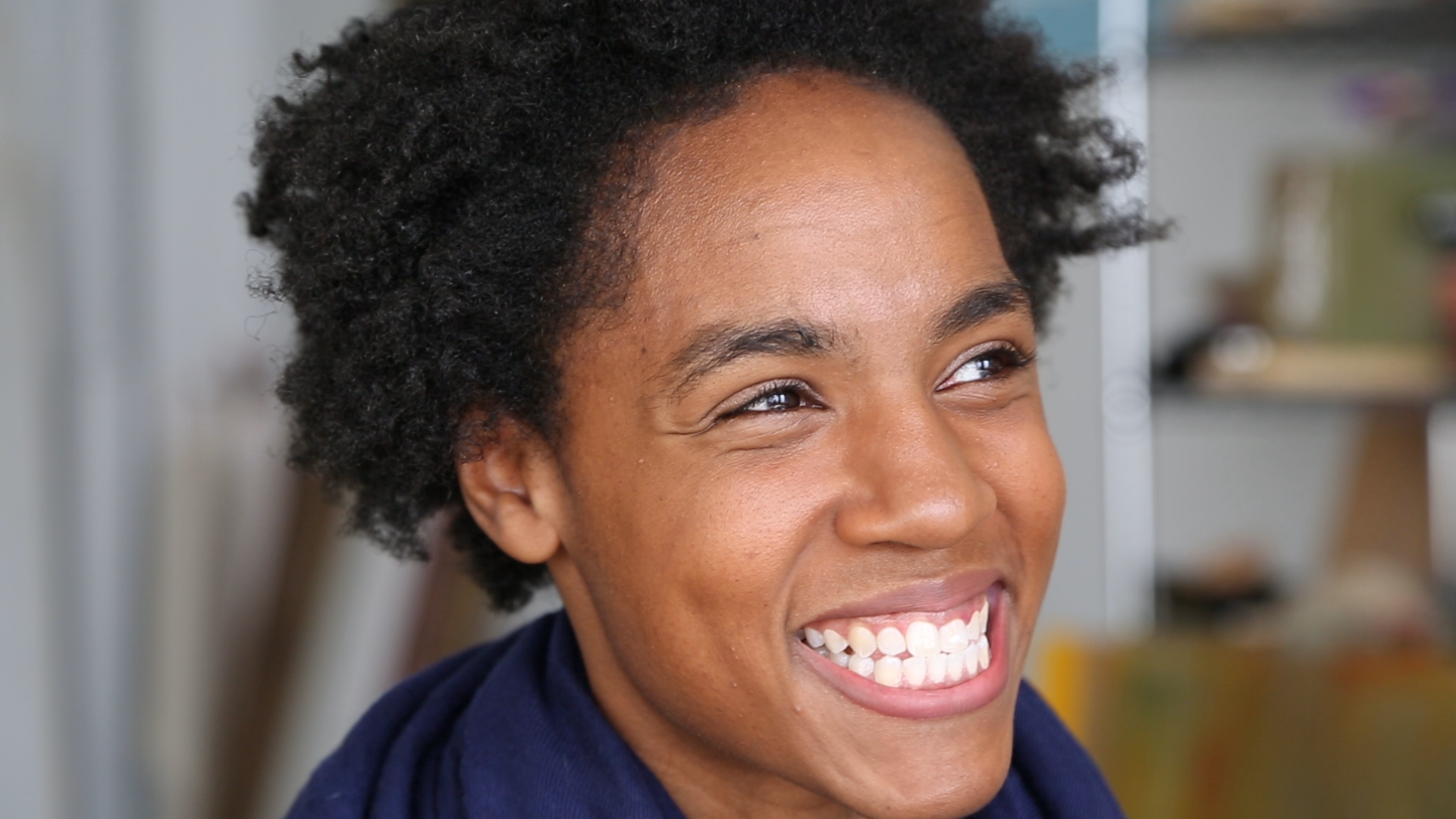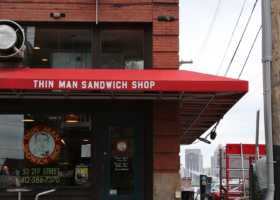
As a first-year student at the University of Pittsburgh, Aisha White had a run-in with a man in a grilled cheese costume that changed her life. Curious (and hungry), White learned that the guy in the goofy get-up was a member of Pitt’s chapter of FeelGood, a student-run, non-profit grilled cheese shop that delivers 100% of its proceeds to charitable organizations that work to combat global hunger. After just over a decade, FeelGood has raised $1.72 million and is active on dozens of college campuses around the country: The humble grilled cheese has proven to be a mighty instrument of change.
Today, White lives in Pittsburgh and serves as the communications chair for FeelGood’s board of directors. We had an opportunity to meet with her to discuss her involvement with FeelGood and the organization’s mission, and, in a video extra from David Bernabo’s Food Systems documentary series, the importance of women in disrupting cycles of hunger and poverty around the globe.
![]()
David Bernabo: What is FeelGood trying to do?
Aisha White: FeelGood is trying to end global poverty, one grilled cheese at a time. We are a movement of youth dedicated to ending global poverty by 2030. On campuses across the country (and now in Canada, too!), students run a successful social enterprise—a grilled cheese deli—to raise money and build public support for the end of extreme hunger and poverty.
DB: How do you go from grilled cheese to ending hunger?
AW: The grilled cheese system works on three levels: Raising money, having transformative conversations, and empowering youth.
First, it raises money. Who doesn’t like delicious grilled cheese?! It’s easy, and some chapters are able to raise between $15,000 to $30,000 a year. It was an easy jump for our founders [Kristin Walter and Talis Apud-Hendricks] to start selling delicious sandwiches in order to raise funds for their favorite non-profits. Today, every dollar students raise is invested in the Commitment 2030 Fund, a select group of organizations working to fulfill the Sustainable Development Goals. This raises the question of “Why sell food to end world hunger”—let’s look at the second level of FeelGood’s operations: Conversations.
Each student, faculty, or community member that comes to a FeelGood deli or event at any of our campuses is given the opportunity to engage in a transformative dialog on a variety of topics ranging from gender equality, global education, poverty, and our food system. So each grilled cheese doesn’t just count as a donation but as a chance to convince someone to make a difference and get involved in society in one way or another. And that takes us to our third level: Creating a generation of changemakers.
FeelGood has a proven system of engaging students and providing them with tools to start a business, make a difference, and end global poverty in our lifetime. Grounded in the fact that our generation is going to have to take on mankind’s most difficult challenges, we are dedicated to empowering students with the confidence that they can make a difference.
DB: How did you get involved with FeelGood?
AW: My freshman year at the University of Pittsburgh, I ran into a guy running around in a grilled cheese costume who gave me a flyer to attend a meeting about selling grilled cheese and volunteering. I love food and I love volunteering, so it seemed like a good fit.
Like most students who attend their first meeting, I was drawn in by the grilled cheese—but stayed for the community of people who not only cared about ending global poverty but were dedicated to ending it in our lifetime. The love, support, and hope that was in this small group of students was so inspiring, and as I met more students around the U.S. and [the FeelGood staff] who operate on a system of love and gratitude, I was hooked.
Through the years I’ve volunteered in a variety of positions with chapters and the movement. I started out as a simple grill cook and moved on to grilled cheese master (a self-appointed title). I’ve served as chapter president for the FeelGood chapter at Pitt, running the deli for a year alongside an amazing board. I’ve been a chapter advisor for our new chapter incubator/application process and currently I run the overall communications and marketing for the movement as a member of the Board of Directors. I’ve been involved with FeelGood for six years—and I hope many more.
DB: How can students in Pittsburgh get involved?
AW: Join a chapter! Or start one if you don’t attend Pitt or Duquesne (I’m talking to you, Carlow, IUP, CMU, etc.). If you’re looking for a more low-effort way to get involved, stop by one of their events or delis for a delicious grilled cheese and make a donation! You can also contact me at aisha@feelgood.org if you have any questions.
This is a segment adapted from David Bernabo’s multi-part documentary Food Systems. See more extras from the ongoing series here.




